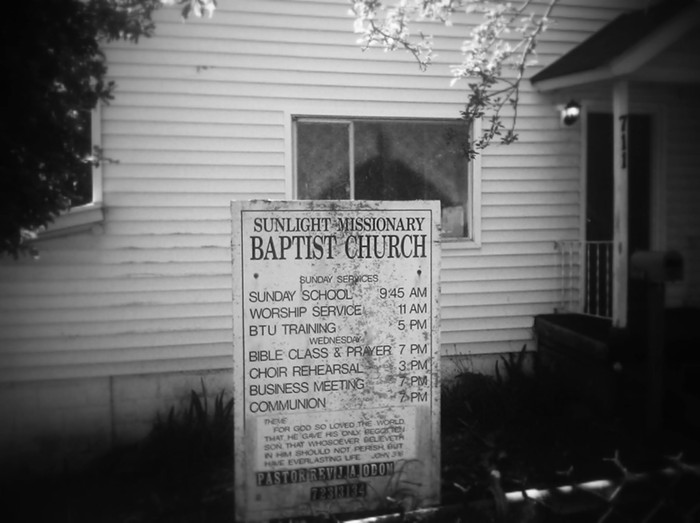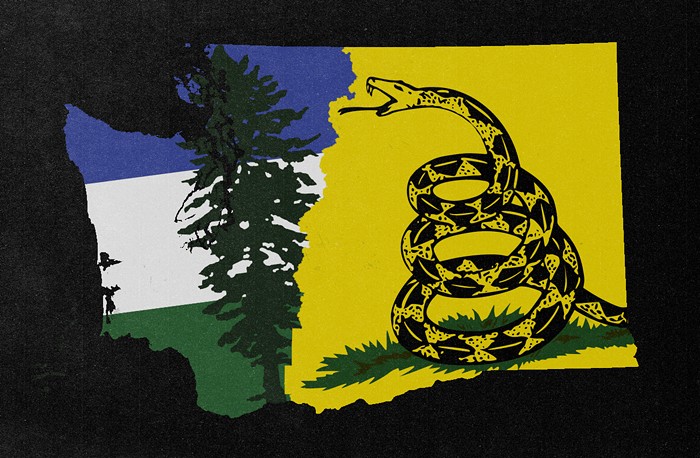
This question has been on my mind lately after a couple of notable incidents. First, there was Joaquin Castro, the Texas Representative and brother of presidential candidate Julián Castro, who put out a list of Trump donors in San Antonio shortly after a white supremacist killed 22 people at a Walmart in El Paso and wounded 24 others.
"Sad to see so many San Antonians as 2019 maximum donors to Donald Trump," Castro tweeted. "Their contributions are fueling a campaign of hate that labels Hispanic immigrants as ‘invaders.'"
It's hard to argue with that. Trump donors are fueling a campaign of hate that labels Hispanic immigrants as "invaders." Still, this move prompted quite a backlash. While donor information is publicly available if you search for it, there's a big difference between looking it up for yourself and an elected official splashing this information all over the internet. Many criticized Castro for putting his own constituents, most of whom were retirees or small business owners, in potential danger.
This came up again last week, when Will and Grace star Debra Messing requested a list of attendees at a Trump fundraiser in Hollywood. "Please print a list of all attendees please,” she tweeted at the Hollywood Reporter in response to an article on the event. “The public has a right to know.”
Messing was joined by co-star Eric McCormack, who asked the paper to "kindly report on everyone attending this event, so the rest of us can be clear about who we don’t wanna work with" in the future.
The Hollywood Reporter declined their request, but the Messing/McCormack tweets caused quite a fervor Tuesday on The View, and it wasn't just token Republican Meghan McCain who took issue with their idea.
"It's not a blacklist, it's a whitelist," co-host Joy Behar began—which is a good joke. "But I happen to be against that kind of thing. I do believe that you should know if a company gave a lot of money to Trump. The names of some of these companies are going around on Facebook and you can say, 'No, I'm not going to buy that 2-by-4 from that company.’ But when it's individuals, I think that then you are stalking and you are starting to endanger that person's life, so I don't approve of that."
Whoopi Goldberg, who might actually loathe Trump more than Behar, agreed, and she did not mince words. Looking at the camera, she addressed Messing and McCormack, as well as the rest of America, directly. The video is, really, worth watching (Whoopi is pissed), but here's the transcript:
Listen, the last time people did this, people ended up killing themselves. This is not a good idea. Your idea of who you don't want to work with is your personal business. Do not encourage people to print out lists because the next list that comes out, your name will be on and then people will be coming after you.
We had something called the blacklist and a lot of really good people were accused of stuff. Nobody cared whether it was true or not. They were accused and they lost their right to work. You don't have the right. In this country, people can vote for who they want to. That is one of the great rights of this country. You don't have to like it, but we don't go after people because of who they voted for. We don't go after them that way.
We can talk about issues and stuff but we don't print out lists, and I'm sure you guys misspoke when you said that because it sounded like a good idea. Think about it. Read about it. Remember what the blacklist actually meant to people and don't encourage anyone—anyone—to do it.
Goldberg was referring, presumably, to the Hollywood blacklist, when, during the Red Scare, people accused of being communists or communist sympathizers were barred from working in the industry by Hollywood studios.
It's a bit ironic that Messing and McCormack specifically requested the Trump list from the Hollywood Reporter: It was William Wilkerson, the founder and publisher of that paper, who first started publishing the names of alleged Communist sympathizers in the 1940s.
There were real consequences to this. The year after "Billy's List," as it was known at the time, was first published, 10 screenwriters who refused to testify at Sen. Joseph McCarthy’s Congressional hearings on the alleged communist influence in Hollywood on the grounds of free speech were arrested, jailed, and barred from employment in the industry. Many others were added to this blacklist in subsequent years, including actor Phillip Loeb, who was named as a communist by a right-wing journal in 1950 along with 150 others. Loeb, who was starring in the CBS comedy The Goldbergs (no relation to Whoopi) at the time, denied the allegations, but after complaints from sponsors, he resigned from the show and was largely unable to find further work. Depressed, unemployed, and broke, Loeb killed himself a few years later.
He was not alone. Bartley Crum, a lawyer for the Hollywood 10 who was put under FBI surveillance and lost most of his clients, killed himself in 1959, which his daughter, the writer and actor Patricia Bosworth, attributes to his experience. In 1992, she wrote of her dad, "When we saw him, he tried to be cheerful, but more often he was edgy and depressed. We never discussed what the blacklist had done to him or his friends. Essentially, the blacklist was a conspiracy of silence; explanations were never given, never asked for."
Of course, times have changed in the past 70 years. The people in office are, perhaps, equally odious, but then, it was largely Washington Republicans advocating for blacklists; today, it's a couple of Hollywood Democrats, who after being widely criticized for this request, walked it back.
“I absolutely do not support blacklists or discrimination of any kind, as anyone who knows me would attest," MacCormack posted online on Tuesday. "I’d simply like to understand where Trump’s major donations are coming from, which is a matter of record. I am holding myself responsible for making educated and informed decisions that I can morally and ethically stand by and to do that, transparency is essential."
It's a bit of a backflip. He did, in fact, ask for a list of Trump supporters for the express purpose of shunning them, but I do have some sympathy for the guy. These aren’t just Trump voters; they are people who gave Trump money. Trump is a unique danger in this world, and it's possible that naming and shaming his supporters would make them think twice about donating to his campaign.
Of course, it's also possible that it would do the opposite. That, it seems, is what happened with at least one of the Trump donors Joaquin Castro publicly shamed: Edward Steves, who was one of six Trump donors who has also contributed to Castro and his brother, told the Washington Examiner , "[Casto has] probably got 44 people that are going to contribute heavily to whoever might run against him in the primaries."
In the end, I'm with Whoopi on this. The beauty, and the terror, of our democracy is that everyone is free to support whatever candidate he or she chooses—even, unfortunately, Donald Trump—and as a society, it's essential to uphold these liberal values for those we don't like in order to protect everyone else. (It's also worth noting here that if elections were publicly funded, this would be less of an issue.)
In messy moral quandaries like this, I find it helpful to ask myself how I would feel if the roles were reversed. What if it were Trump voters putting out lists of Democratic supporters and donors and calling for boycotts and blacklists (which, frankly, I'd be shocked if they don't already do)? When you imagine this power in the other side's hands, it becomes abundantly clear just how dangerous it could be. As Whoopi put it, this time the list is Trump donors; the next time, it could be you.















